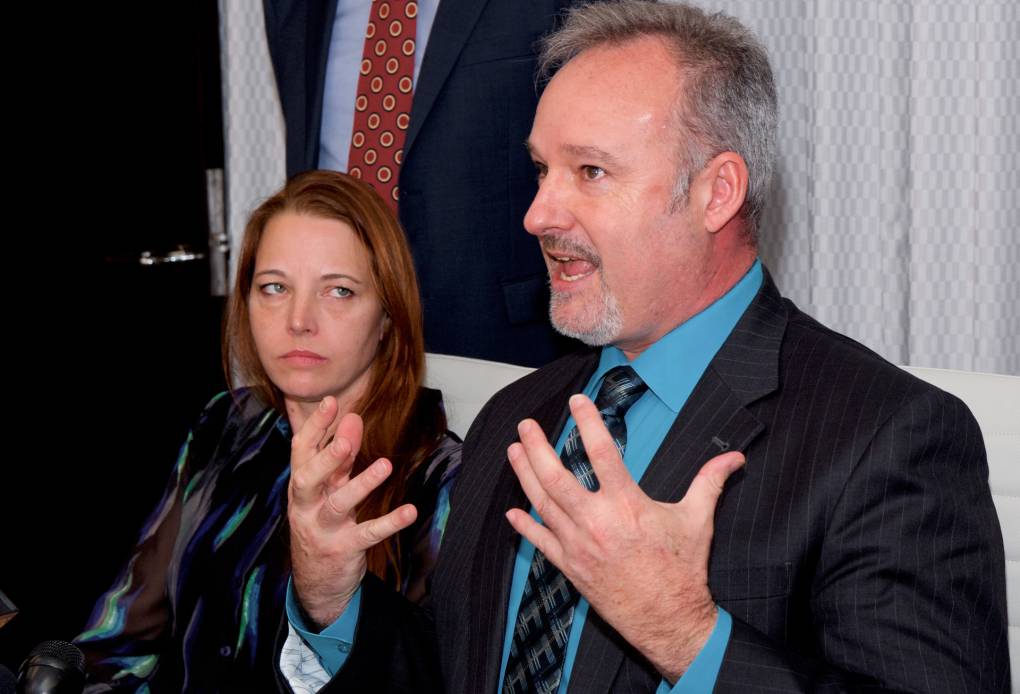“I hired and promoted women, people of color and LGBTQIA+ individuals into leadership positions throughout the agency. I created the Office of Diversity, Equity and Inclusion within the air sistrict to identify and adopt policies and practices to ensure and promote diversity and cultural awareness. I am proud of these efforts and strongly do not agree with the allegations as reported in the media,” he said.
The firing of Sanders and Levels, along with Breen’s retirement, took place after other recent leadership changes at the district. The agency fired Jeff McKay, then its chief financial officer. Broadbent retired in June 2022. Brian Bunger, the agency’s top lawyer for more than 20 years, also left last January.
Sanders and Levels claim McKay used the derogatory term “torpedo t____” in reference to a female contractor’s breasts. The lawsuits say Broadbent subsequently used the same words to refer to the woman.
Levels and Sanders both alleged that they, along with other women of color and LBGTQIA+ individuals at the agency “were routinely silenced by white heterosexual men in group settings.”
For example, the suits say McKay held his hand up at a meeting to a woman of color to signal her to stop speaking.
McKay said in a text he had not seen the complaints until contacted by KQED and declined to comment after receiving them.
In an awkward appearance before the board before he left the agency, McKay claimed he was threatened with being fired if he told district board members about “ongoing and escalating illegal activity at the district,” activity he never publicly outlined.
The lawsuits describe the air district as “a hostile and discriminatory ‘old boys club’ where heterosexual white men are in charge, while others are deprived of equal opportunities and treatment.”
The suits recount a number of incidents they say bear out those allegations.
Both cite an episode during which a white heterosexual male employee is alleged to have “grabbed a woman of color by her wrist when she tried to leave a conversation, forcing her to stay.”
The suits say a top executive called multiple women of Asian descent the wrong names in several meetings.
Levels’ suit says a manager asked her if he could borrow her hair for Halloween and wore fake mole stickers, a kind of temporary face tattoo, to mock her.
An air district representative pushed back against the allegations.
“Our position is that the legal claims are without merit, and our legal team is confident the facts and circumstances will prove this to be the case,” said the district’s communications director, Kristine Roselius, in an emailed statement.
“The air district works to foster an inclusive culture and we view diversity as one of our greatest strengths,” the statement added. “Once all the facts are known, we fully expect to prevail in this matter and remain committed to upholding the highest standards of professionalism and fairness for all our employees.”
Roselius pointed to copies of air district letters that were included in the complaints that explained the agency’s firing decisions.
Those letters accused Sanders and Levels of making a series of costly missteps in overseeing district policy and setting pay levels for officers.
Among the issues raised in the 15-page letter air district interim Chief Operating Officer Sharon Landers sent Sanders was the fact they approved a 46% pay increase for the acting district counsel while the counsel was investigating a complaint Sanders had filed against other district executives. The district found that Levels had also exercised “poor judgment” in approving the raise.
Landers also accused Sanders of wasting district resources and being dishonest during the process of developing an anti-bullying policy for the district, and she charged Sanders had been insubordinate and disrespectful toward her on numerous occasions.
Landers wrote that during a forum Sanders made a “veiled reference to unfounded allegations made against me from a previous job. Taking cheap shots at me like this, when you knew I was in the hospital dealing with serious health problems, was unfair, mean-spirited, and highly inappropriate.”
Sanders disputes the district’s justifications for their firing. They argue they were fired for opposing the agency’s discriminatory practices, that during their time at the district they were treated poorly because of their sexual orientation, gender identity, sex and disability.
Sanders and Levels also say the workplace problems are getting in the way of the job the regulatory agency is tasked with.



